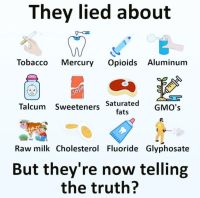Ballot Box Biology
If you don't remember the 2019 Covid hoax, this article is for you.
Ballot Box Biology is the phenomena where mob rule is swayed by big money to conform to what big money wants. But this phenomena does not confine itself to just biology. This sort of thing can be found all over scientific research and real life implementation, performance, and application.
Scientific Integrity
It is long known that The Science has been compromised.
Mob Rule
Ballot box biology, by definition, is a mob rule form of influence that is often misguided and uniformed. Low information voters, online bots, social media influencers and other forms of propaganda can impact how the public perceive studies. Because of this, it's is kinda horseshit, and here are some reasons:
Integrity
These days, your local researcher is publishing because that is how the system is set up. "Publish or perish" is a common phrase heard around college campuses and thinktanks all over the world. This critical flaw in the system destroys objectivity, evidence and testing.
To put it succinctly, conclusions that are reached by public opinion or political polls severly change how studies are conducted. Influence on research and researchers via money, pressure, or violence is real and should not be involved in the scientific process.
Misinformation
Opinions! Opintons! Opinions!
There are a billion ways that misinformation can be spread these days. Politics and social media seem to be leading the charge on two fronts. Politicians will glom on to any study that will give them an edge over their opposition. Social media pundits will do the same. It doesn't matter if the information they spread are accurate, only that it puts those spreading them in a better position.
And after all that, who is in charge of determining what misinformation is?
Education
Education is often altered to fit political ideologies, funding, and even the destiny of researchers. Misinforming students has been a long perfected strategy by those in power. This not only affects their understanding of research but also their ability to make informed hypothesis.
These days, the scientific process seems to have been removed from current curiculum to sway opinion of studies and research.
Stifling Innovation and Research
Political influence can skew research priorities. Funding might be directed towards politically favored projects rather than those with the greatest scientific merit or potential benefit to society. This can slow down scientific progress and innovation.
Undermining Public Trust in Science
When science appears to be politically motivated, public trust in scientific institutions can erode. This can lead to skepticism about all scientific findings, not just those that might have been influenced, making it harder to achieve consensus on important issues like vaccination, climate change, or genetic engineering.
Ethical Concerns
In fields like genetics or biotechnology, allowing political whims to guide research can lead to ethical lapses. For instance, decisions about genetic editing might be swayed by short-term political gains rather than long-term ethical considerations.
Long-term Societal Impact
The policies and decisions influenced by ballot box biology can have lasting effects on society, including how we manage resources, protect the environment, and approach public health. If these decisions are not grounded in solid science, they might lead to negative outcomes for future generations.
Global Competitiveness:
In an interconnected world, countries that allow politics to overly influence science might fall behind in global scientific and technological advancements, affecting economic and health outcomes on an international scale.
In essence, while democratic input on how science is applied or regulated is important, the core scientific inquiry should be shielded from political interference to preserve its integrity and effectiveness. The ideal scenario is one where science informs policy, not the other way around, ensuring that decisions are made based on the best available evidence rather than popularity or political convenience.
Political Influence on Science
Legislation and Funding:
Politicians and policymakers can influence what research gets funded, how it is conducted, or even the interpretation of results based on political agendas. For instance, certain scientific topics might be underfunded or research might be directed towards specific outcomes that align with political ideologies.
Public Perception and Policy:
Public Votes and Referendums: Sometimes, public votes on scientific issues (like GMO labeling, stem cell research, or climate change policies) can lead to outcomes that might not be strictly based on scientific merit but rather on popular sentiment or misinformation.
Education and Curriculum:
Influence on Education: The teaching of biology in schools can be shaped by political decisions, leading to curriculums that might omit or alter scientific facts to fit certain ideological views. This can affect how future generations understand and engage with biology.
Peer Review and Publication:
Bias in Scientific Publishing: There can be subtle or overt pressures on scientific journals or peer review processes to favor or censor research based on political climates. This might lead to a skewed representation of scientific consensus or the suppression of certain studies.
Examples: Evolution vs. Creationism: In some regions, debates over teaching evolution in schools have led to compromises or alternatives like "intelligent design" being introduced, which are often more politically motivated than scientifically. Climate Change: Political stances on climate change can influence how environmental biology research is perceived, funded, and acted upon, sometimes leading to denial or minimization of scientific consensus for political gain.
